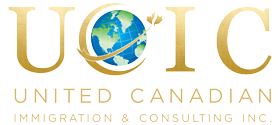STUDY IN CANADA
Canada has a well-established position among the world’s leading study destinations. The quality of Canadian education is globally recognized. Studying in Canada can be an experience of a lifetime; open your door to a future and career advancement.
Canada values its education system and prides itself in offering a multi-cultural, comprehensive, and supportive learning environment for students from all over the world. Classrooms foster leading-edge learning, academic excellence, and opportunity. Millions of students across the globe are dreaming about being accepted to one of the Canadian schools, colleges or universities and receiving a study permit.
STUDYING IN CANADA
Coming to Canada as a student could be one of the first steps in immigrating to this country, or it could simply be an enriching educational experience. We will help you to figure out what your journey as a student in Canada could look like. We will support you to take all the right steps forward.
CANADIAN EDUCATIONAL SYSTEM
Generally, most schools in Canada can be classified as:
- Primary School: (usually means grades K-8)
- Secondary School: (usually means grades 9-12)
- Post-secondary School: Post-secondary schools are colleges, universities, private career colleges and vocational/technical schools.
You can come to Canada to study as early as you want as all primary and secondary schools in Canada can enroll international students.


There are various benefits when you come to Canada as an International Student!
 Be able to work on or off-campus, up to 20 hours/week during school terms and full-time during school breaks.
Be able to work on or off-campus, up to 20 hours/week during school terms and full-time during school breaks.















MINOR CHILDREN ALREADY IN CANADA
Minors already in Canada can apply for a study permit.
Minor children who are already in Canada may study without a study permit if they:
- are in kindergarten, no matter what their parents’ status is in Canada
- want to go to pre-school, primary or secondary school and have a parent who is allowed to work or study in Canada
- are refugees or refugee claimants
- have parents who are refugees or refugee claimants
- came to Canada as a visitor for a course or program of studies of six months or less
- will study in a course or program of six months or less
- are in Canada by themselves
However, in some provinces or territories, the minor child may need a study permit to receive social services. For this reason, having a valid study permit for your minor child may benefit you. Minors who don’t have a study permit will need a valid visitor status during their stay in Canada.




Circumstances where a study permit is not required
There are some exceptions, where you don’t need a study permit to study in Canada:
- The program you are studying is less than 6 months
- A minor child studying in primary or secondary school (grades k-12) whose parents hold a valid work or study permit
- If you are a family member of a foreign diplomat, or if you are member of staff of a foreign diplomat. (Family members include spouses, common-law partners, and dependent children)
- If you are member of foreign armed forces of a country that is a designated state un the Visiting Forces Act
STUDY PERMIT
In most cases, if you want to study at a learning institution in Canada, you need a study permit. A study permit is an official document issued by the Government of Canada, which allows foreign nationals to study in Canada.
The general requirements to apply for a study permit, a prospective student:
- Must obtain a letter of acceptance from a designated learning institution (DLI) before you can apply for a study permit
- Must prove that you have sufficient financial support to cover the first year of tuition, as well as living expenses and roundtrip transportation to and from your home country
- Must obtain a Certificat d’acceptation du Quebec (Quebec Acceptance Certificate, or CAQ) if you wish to study in Montreal or elsewhere in the Province of Quebec
- Must have clean record. Applicants with a criminal background, or who pose a risk to Canadian security, may be refused. IRCC may request an applicant to supply a police clearance certificate
- Must be in good health. IRCC may request an applicant to complete a medical examination; and,
- Must satisfy the immigration officer that you will leave Canada at the end of the stay authorized by the study permit
There may be other supporting documents required to be submitted with your application. For further information, contact our office.
STUDENT DIRECT STREAM (SDS)
The Student Direct Stream process might help you to become a student in Canada faster than a regular study permit application. Immigration, Refugees and Citizenship Canada (IRCC) will process most applications submitted under this stream within 20 calendar days.
This stream is open to those who live in the following countries:
- India
- China
- The Philippines
- Pakistan
- Vietnam
- Morocco
- Senegal
- Brazil
- Colombia
- Peru
- Antigua and Barbuda
- Costa Rica
- Trinidad and Tobago
- Saint Vincent and the Grenadines
To be eligible for the Student Direct Stream, you must also meet the following requirements:
- Be a legal resident living in either India, China, the Philippines, Pakistan, Vietnam, Morocco, Senegal, Brazil, Colombia, Peru, Antigua and Barbuda, Costa Rica, Trinidad and Tobago or, Saint Vincent and the Grenadines.
- Have an acceptance letter from a post-secondary designated learning institution
- Live outside of Canada when you apply
- Have proof that you have paid your tuition for your first year of study
- Have a Guaranteed Investment Certificate (GIC) of CAN$10,000.00
- Have a Certificat d’acceptation du Québec (CAQ) from the Ministère de l’Immigration, de la Francisation et de l’Intégration. This is only if you’re planning to study in Quebec
- Get a medical exam before you apply. Depending on where you are from, you may be required to get a medical certificate
- Get a police clearance certificate before you apply. Depending on where you are from, you may be required to get a police clearance certificate
- Have your most recent secondary or post-secondary school transcript(s)
- Have a language test result that shows either:
- an International English Language Testing System (IELTS) academic or general training score of 6.0 or higher in each skill (reading, writing, speaking and listening), or
- a Test d’évaluation de français (TEF) score that is equal to a Canadian Language Benchmark (CLB) score of at least 7 in each skill (reading, writing, speaking and listening)
There may be other supporting documents required to be submitted with your application. For further information, contact our office.
Study Pathways to Permanent Residence (PR)
International students who complete their post-secondary education in Canada have options for extending their stay and eventually transitioning to permanent residence. Many post-secondary and higher level graduates will be eligible to apply for a Post-Graduation Work Permit (PGWP) after the successful completion of their studies. The PGWP allow the international graduate to work for any employer, at any location in Canada, for up to 3 years after graduation. Those who can gain work experience, can improve their ability to qualify to apply for permanent residency under different programs such as the Canadian Experience Class and certain Provincial Nominee Program (PNP) streams.
If an international graduate does not apply for a PGWP, he or she may do the following to maintain legal status in Canada:
- Apply to change status to a visitor
- Obtain another work permit if they are eligible for one (e.g., an employer-specific work permit)
- Apply for another study permit to continue a different study program
- Or Leave Canada before the end of their authorized stay
CASE STUDY
AJSK was 8 years old when his father returned to Canada on a work permit. His father really wanted his wife and son to travel to Canada so that his son could get a better education. Unfortunately, JSK and his mother had been refused for visitor visas several times—even after coming to Canada on a valid visitor visa once before! The family did not think it would be possible for them to reunite because of these refusals, which only cited generic reasons that they could not understand. JSK’s father came to UCIC and we helped the family address their travel history and mother’s employment history in particular. Finally, JSK‘s study permit was approved. He was able to travel to Canada with his mother, who also received a visitor visa, and the whole family was reunited.
Interested in any of the following?
Applying for a Study Permit from outside of Canada
Extending your Study Permit inside Canada
Applying for an Open Work Permit for your accompanying spouse
Applying for a Study Permit for your accompanying child
Applying for a Post-Graduation Work Permit

